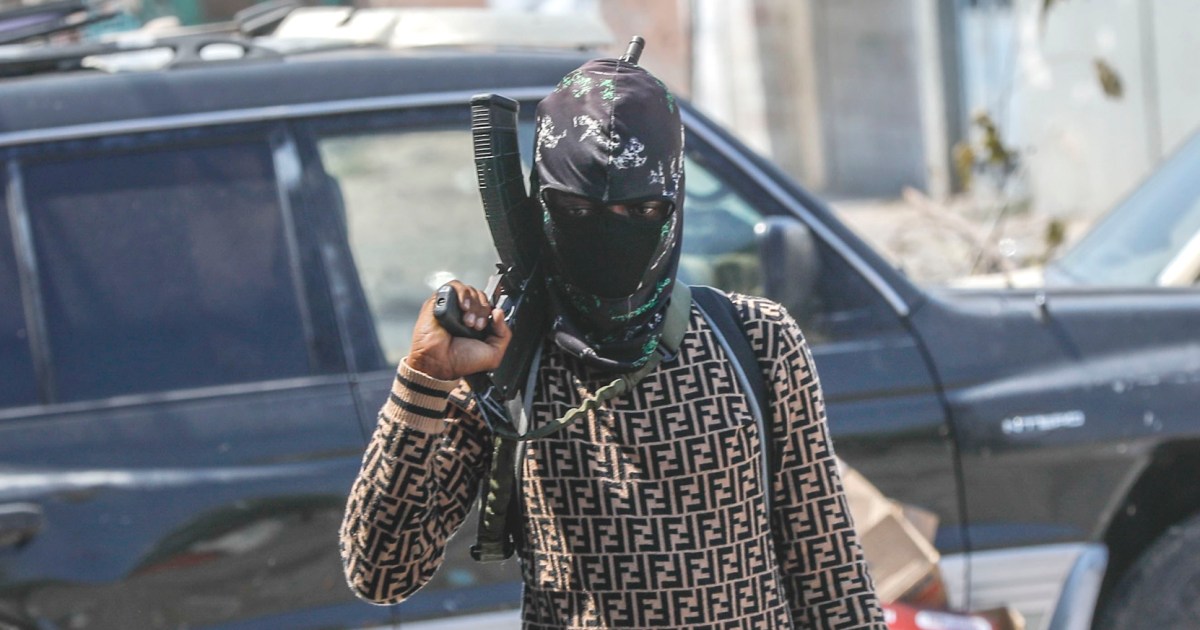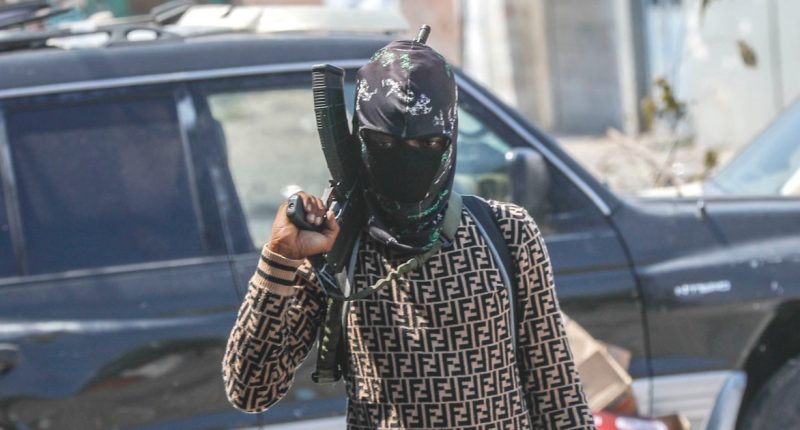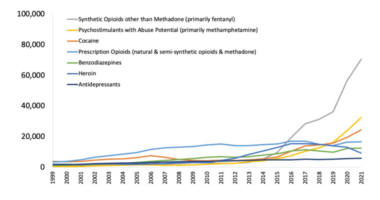
Port-au-Prince teacher Jose Netant once dedicated his life to educating young people in English and Spanish. Now, the 29-year-old has resorted to hiding under his mattress while struggling to survive as violence overtakes his neighborhood in Haiti’s capital.
Netant, who taught at the Institution Mixte Tizanj Ayisyen, lives in Croix-des-Bouquets, once a cherished cultural center in Haiti, that is now gripped by the violent reign of the notorious street gang 400 Mawozo.
The gang’s activities, including kidnappings and extortion, have forced hundreds of Netant’s neighbors to flee over the last several years. He has observed a decline in school attendance, with many students staying home because of shootings.
“The small number of people who attend are always under a lot of stress,” he said. “They stress a lot about the condition the country is under, even to this day.”
“I started noticing a rise in gang violence in 2017,” Netant added. “It gave me a lot of headaches. I was in mental pain. I was stressed a lot.”
But more recently, a nearby civil prison was one of several in which gangs overran the prisons, setting off a wave of heightened violence in early March.
“The bandits destroyed Croix-des-Bouquets,” said Netant, who lives with his wife. “They killed people. They destroyed the prison. They commit a lot of crime. They burned down houses with people in them.”
As the violence worsened, he found himself living in constant fear. “Every time the bandits get to my neighborhood, everyone runs for safety. Some people lie down straight on the floor underneath a bed. That’s what I do,” he said. “The bandits are shooting. Sometimes, they enter people’s homes and kill them. They shoot senselessly.”
Netant has endured the harrowing experience more than 10 times.
Despite the constant threat of violence, “I haven’t been able to leave the neighborhood,” he said.
Netant said the situation has taken its toll on him and others in his community. “I’m still in Port-Au-Prince. I can’t leave to go north because the gangs blocked all the roads,” he said. “There are still shootings, and I’m always running for safety.”
The U.N. World Food Programme reports that roadblocks have caused shortages of food and fuel, resulting in soaring prices and worsening hunger.
The gangs’ impact extends beyond disrupting daily life, with the closure of a nearby industrial park and a food shortage affecting thousands of families. “Food is extremely expensive. There’s no food. People are dying from hunger,” Netant said. “A lot of people died from hunger in Port-au-Prince.”
The dire situation in Haiti continues to escalate. The U.N. food agency reported that the level of food insecurity in Haiti is among the highest worldwide, with the number of food-insecure people tripling since 2016. Approximately 4.35 million Haitians, almost half of the population, do not have enough to eat, and 1.4 million are experiencing emergency levels of food insecurity.
Netant said the political situation in Haiti is chaotic, as Prime Minister Ariel Henry has been blocked from re-entering the country after gangs blocked access to the Port-au-Prince airport.
“Right now, the gangs are the ones controlling Port-au-Prince. They think they will always be here, and that’s why they don’t want the international community to get involved in the country’s politics,” Netant said.
According to a United Nations estimate, a significant portion of these gangs has seized control of at least 80% of the capital.
Netant’s hopes for a better Haiti lie in unity. “All heads need to come together. We are stronger together,” he said. “Change needs to start from within the house. All of that is needed to change Haiti.”
Source: | This article originally belongs to Nbcnews.com









